| Listing 1 - 10 of 119 | << page >> |
Sort by
|
Book
ISBN: 9025947514 9789025947514 Year: 1998 Publisher: Baarn,
Abstract | Keywords | Export | Availability | Bookmark
 Loading...
Loading...Choose an application
- Reference Manager
- EndNote
- RefWorks (Direct export to RefWorks)
Zonder tolerantie zouden onze moderne maatschappijen niet kunnen functioneren. Tolerantie als idee is bij iedereen bekend en roept automatisch de reactie op: Natuurlijk, het accepteren van de 'ander'! Ook voor Walzer geldt dat tolerantie betekent: Het accepteren van anderen, van andere culturele, etnische groepen. Walzer geeft echter aan dat 'ware' tolerantie niet alleen acceptatie van de 'ander'is, maar ook de 'ander' respecteren. Vanuit deze omschrijving van tolerantie behandelt Walzer enkele actuele vragen: Waar eindigt tolerantie en begint relativisme? Hoe verhoudt de diversiteit, die ons dwingt tot tolerantie, zich tot de notie van gemeenschappelijkheid, tot het streven om een stabiele (politieke) en legitieme (morele) maatschappelijke orde te creëren? En, tot slot, waar ligt de verantwoordelijkheid van de 'ander', van de 'minderheid'? Daarna analyseert Walzer hoe tolerantie in diverse maatschappijvormen tot uiting komt en bepleit hij een postmoderne variant van tolerantie. (Bron: covertekst)
Social ethics --- Sociology of minorities --- verdraagzaamheid --- racisme --- politieke ethiek --- 172 --- 325 --- 32
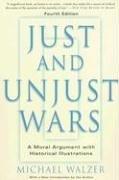
ISBN: 9780465037070 0465037070 Year: 2006 Publisher: New York Basic Books
Abstract | Keywords | Export | Availability | Bookmark
 Loading...
Loading...Choose an application
- Reference Manager
- EndNote
- RefWorks (Direct export to RefWorks)
Social ethics --- Polemology --- JUST WAR DOCTRINE --- WAR--MORAL AND ETHICAL ASPECTS --- War --- Armed conflict (War) --- Conflict, Armed (War) --- Fighting --- Hostilities --- Wars --- International relations --- Military art and science --- Peace
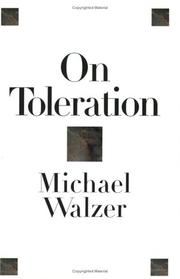
ISBN: 0300076002 0300070195 9780300070194 Year: 1997 Volume: *1 Publisher: New Haven, Conn.,
Abstract | Keywords | Export | Availability | Bookmark
 Loading...
Loading...Choose an application
- Reference Manager
- EndNote
- RefWorks (Direct export to RefWorks)
Social ethics --- Political philosophy. Social philosophy --- Philosophy and psychology of culture --- Basic rights --- Civil rights (International law) --- Cultural diversity policy --- Cultural pluralism policy --- Diversité culturelle --- Droits de l'homme --- Droits de la personne --- Droits fondamentaux --- Droits individuels --- Grondrechten --- Human rights --- Libertés publiques --- Mensenrechten --- Multiculturalism --- Multiculturalism--Government policy --- Multiculturalisme --- Multiculturele samenleving --- Pluralism (Social sciences) --- Pluralisme (Sciences sociales) --- Pluralisme (Sociale wetenschappen) --- Rechten van de mens --- Rights [Human ] --- Rights of man --- Samenleving [Multiculturele ] --- Tolerantie --- Toleration --- Tolérance --- Verdraagzaamheid --- 172.3 --- Religie en staat. Gewetensvrijheid. Intolerantie. Tolerantie --- Cultural pluralism. --- Human rights. --- Multiculturalism. --- Toleration. --- 172.3 Religie en staat. Gewetensvrijheid. Intolerantie. Tolerantie --- Direitos humanos --- Droits de l'Homme --- Menschenrechte --- Multiculturalismo --- Multikulturalismus --- Pluralismo cultural --- CDL --- 130.2 --- Cultural pluralism --- Bigotry --- Intolerance --- Tolerance --- Virtues --- Discrimination --- Ethnic diversity policy --- Social policy --- Anti-racism --- Ethnicity --- Cultural fusion --- Rights, Human --- Human security --- Transitional justice --- Truth commissions --- Cultural diversity --- Diversity, Cultural --- Diversity, Religious --- Ethnic diversity --- Pluralism, Cultural --- Religious diversity --- Culture --- Government policy --- Law and legislation
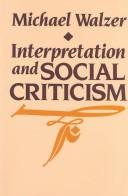
ISBN: 0674459709 0674459717 Year: 1987 Publisher: Cambridge, Mass.
Abstract | Keywords | Export | Availability | Bookmark
 Loading...
Loading...Choose an application
- Reference Manager
- EndNote
- RefWorks (Direct export to RefWorks)
Political philosophy. Social philosophy --- 316.752 --- 172.022 --- Ethics --- Hermeneutics --- Social sciences --- -#SBIB:321H30 --- Behavioral sciences --- Human sciences --- Sciences, Social --- Social science --- Social studies --- Civilization --- Interpretation, Methodology of --- Criticism --- Deontology --- Ethics, Primitive --- Ethology --- Moral philosophy --- Morality --- Morals --- Philosophy, Moral --- Science, Moral --- Philosophy --- Values --- Waarden --(sociologie) --- Kritiek op de maatschappij. Maatschappijkritiek --- Hedendaagse politieke en sociale theorieën (vanaf de 19de eeuw): algemeen (incl. utilitarisme, burgerschap) --- Ethics. --- Hermeneutics. --- Philosophy. --- 172.022 Kritiek op de maatschappij. Maatschappijkritiek --- 316.752 Waarden --(sociologie) --- Social philosophy --- Social theory
Book
ISBN: 9789085065425 Year: 2008 Publisher: Amsterdam,
Abstract | Keywords | Export | Availability | Bookmark
 Loading...
Loading...Choose an application
- Reference Manager
- EndNote
- RefWorks (Direct export to RefWorks)
Social ethics --- Political philosophy. Social philosophy --- politieke filosofie --- 340.12 --- 321.01 --- Natuurrecht. Rechtsfilosofie --(algemeen) --- Algemene staatsleer. Politieke filosofie. Staatsleer. Staatstheorie --- 321.01 Algemene staatsleer. Politieke filosofie. Staatsleer. Staatstheorie --- 340.12 Natuurrecht. Rechtsfilosofie --(algemeen)
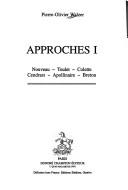
ISBN: 2852032805 2852034379 Year: 1993 Volume: 11, 28 Publisher: Paris Champion
Abstract | Keywords | Export | Availability | Bookmark
 Loading...
Loading...Choose an application
- Reference Manager
- EndNote
- RefWorks (Direct export to RefWorks)
French literature --- Littérature française --- History and criticism --- Histoire et critique --- Toulet, Paul-Jean, --- Colette, --- Cendrars, Blaise, --- Apollinaire, Guillaume, --- Breton, André, --- Mallarmé, Stéphane, --- Valéry, Paul, --- Criticism and interpretation --- Critique et interprétation --- Littérature française --- Breton, André, --- Mallarmé, Stéphane, --- Valéry, Paul, --- Critique et interprétation --- 20th century --- History and criticism. --- Toulet, P.-J.
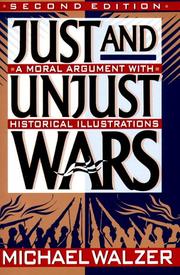
ISBN: 0465037011 Year: 1992 Publisher: London HarperCollins
Abstract | Keywords | Export | Availability | Bookmark
 Loading...
Loading...Choose an application
- Reference Manager
- EndNote
- RefWorks (Direct export to RefWorks)
Book
ISBN: 9780300187809 Year: 2015 Publisher: New Haven : Yale University Press,
Abstract | Keywords | Export | Availability | Bookmark
 Loading...
Loading...Choose an application
- Reference Manager
- EndNote
- RefWorks (Direct export to RefWorks)
"Many of the successful campaigns for national liberation in the years following World War II were initially based on democratic and secular ideals. Once established, however, the newly independent nations had to deal with entirely unexpected religious fierceness. Michael Walzer, one of America's foremost political thinkers, examines this perplexing trend by studying India, Israel, and Algeria, three nations whose founding principles and institutions have been sharply attacked by three completely different groups of religious revivalists: Hindu militants, ultra-Orthodox Jews and messianic Zionists, and Islamic radicals. In his provocative, well-reasoned discussion, Walzer asks why these secular democratic movements have failed to sustain their hegemony: Why have they been unable to reproduce their political culture beyond one or two generations? In a postscript, he compares the difficulties of contemporary secularism to the successful establishment of secular politics in the early American republic--thereby making an argument for American exceptionalism but gravely noting that we may be less exceptional today"--
Democracy --- Political culture --- Secularism --- Religious fundamentalism --- Démocratie --- Culture politique --- Sécularisme --- Fondamentalisme --- Case studies --- Études de cas --- Démocratie --- Sécularisme --- Études de cas --- Case studies.
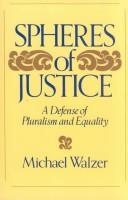
ISBN: 0465081908 0465081894 9780465081905 Year: 1983 Publisher: New York (N.Y.): Basic books,
Abstract | Keywords | Export | Availability | Bookmark
 Loading...
Loading...Choose an application
- Reference Manager
- EndNote
- RefWorks (Direct export to RefWorks)
Equality --- Pluralism (Social sciences) --- Distributive justice --- Cultural pluralism --- Justice distributive --- Égalite (Sociologie) --- Pluralisme --- 241.65*1 --- 321.7 "19" --- Cultural diversity --- Diversity, Cultural --- Diversity, Religious --- Ethnic diversity --- Pluralism, Cultural --- Religious diversity --- Culture --- Cultural fusion --- Ethnicity --- Multiculturalism --- Egalitarianism --- Inequality --- Social equality --- Social inequality --- Political science --- Sociology --- Democracy --- Liberty --- Distribution (Economic theory) --- Justice --- Social justice --- Wealth --- Theologische ethiek: communicatieve en distributieve rechtvaardigheid --- Democratie. Plurale samenleving. Pluralisme. Democratische pluraliteit--(moderne democratie politieke stelsels)--20e eeuw. Periode 1900-1999 --- Moral and ethical aspects --- Cultural pluralism. --- Distributive justice. --- Equality. --- 321.7 "19" Democratie. Plurale samenleving. Pluralisme. Democratische pluraliteit--(moderne democratie politieke stelsels)--20e eeuw. Periode 1900-1999 --- 241.65*1 Theologische ethiek: communicatieve en distributieve rechtvaardigheid --- Egalité (Sociologie) --- Diversité culturelle
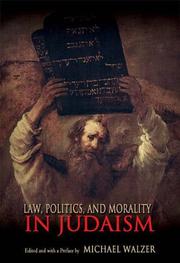
ISBN: 0691125082 0691125074 9780691125077 9780691125084 9786612129476 1282129473 1400827205 9781400827206 9781282129474 6612129476 Year: 2006 Publisher: Princeton, N.J. Princeton University Press
Abstract | Keywords | Export | Availability | Bookmark
 Loading...
Loading...Choose an application
- Reference Manager
- EndNote
- RefWorks (Direct export to RefWorks)
Jewish legal and political thought developed in conditions of exile, where Jews had neither a state of their own nor citizenship in any other. What use, then, can this body of thought be today to Jews living in Israel or as emancipated citizens in secular democratic states? Can a culture of exile be adapted to help Jews find ways of being at home politically today? These questions are central in Law, Politics, and Morality in Judaism, a collection of essays by contemporary political theorists, philosophers, and lawyers. How does Jewish law accommodate--or fail to accommodate--the practice of democratic citizenship? What range of religious toleration and pluralism is compatible with traditional Judaism? What forms of coexistence between Jews and non-Jews are required by shared citizenship? How should Jews operating within halakha (Jewish law) and Jewish history judge the use of force by modern states? The authors assembled here by prominent political theorist Michael Walzer come from different points on the religious-secular spectrum, and they differ greatly in their answers to such questions. But they all enact the relationship at issue since their answers, while based on critical Jewish texts, also reflect their commitments as democratic citizens. The contributors are Michael Walzer, David Biale, the late Robert M. Cover, Menachem Fisch, Geoffrey B. Levey, David Novak, Aviezer Ravitzky, Adam B. Seligman, Suzanne Last Stone, and Noam J. Zohar.
Jewish law --- Judaism and state. --- Law --- Public law (Jewish law) --- Moral and ethical aspects. --- Jewish influences. --- Public law (Jewish law). --- Jewish influences --- State and Judaism --- Biblical law --- Civil law (Jewish law) --- Halacha --- Halakha --- Halakhah --- Hebrew law --- Jews --- Law, Hebrew --- Law, Jewish --- Law, Mosaic --- Law in the Bible --- Mosaic law --- Torah law --- State, The --- Law, Semitic --- Commandments (Judaism) --- Judaism and state --- Moral and ethical aspects
| Listing 1 - 10 of 119 | << page >> |
Sort by
|

 Search
Search Feedback
Feedback About UniCat
About UniCat  Help
Help News
News